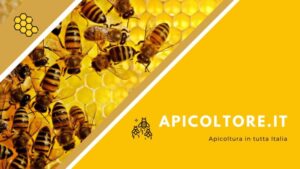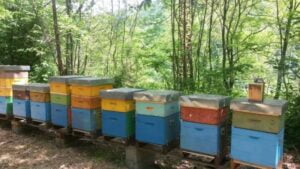.
Greater Europe
Peter Kočalka is a professional bee-keeper. However, he is not just an ordinary commercial bee-keeper, he is interested in organic bee-keeping and always aims to understand their behaviour. Not only do thousands of people already support his approach, but he has developed procedures for bee care and monitoring, which not only helps beekeepers, but also serves to collect scientific data. Bee Hive Weight Monitoring are beekeepers with a large Apiary in Slovak Republic. They are professional beekeepers not just commercial beekeepers. They are interested in organic bee-keeping, and they always seek to understand Bee behaviour. Bees have existed on our planet for over 150 million years. Human intervention into the ecosystem has caused the European honey bees to no longer be able to survive on their own. They have become endangered species. They would go extinct without the care of beekeepers and that, would have a catastrophic impact on the entire ecosystem. Bee Hive Weight Managements vision is to create a system of ecological bee-keeping without the use of any chemicals. In a way which would be sustainable. Currently, they look after hundreds of honey bee colonies. Each one is being monitored with their latest technology. The technology they use is specifically designed to help the beekeepers. The bee-keeper gains a complete overview of the health and productivity of his hives. Thanks to this technology, interventions, which would be unnecessary, aren’t needed. It is 100% biological, 100% residue-free, harmless for the bees, easy to use, usable all year around even during honey flow and gives you maximum benefits. The technology is designed to be affordable for anyone. No setup, no configuration needed. In 2016, they launched some simple and environmentally friendly methods of bee care. Their project is supported by tens of thousands of people who are helping thousands of bee colonies. It doesn't matter what climate you have the bees in, or how good the year is, or what your hives and equipment are. It doesn't even matter what line of bees you have. Before you give up and start arguing that it's meant to be, that it’s the fault of the climate change, try one more experiment, to convince yourself about the opposite. There is always HOPE. A lot of honeybee colonies are lost because bee-keeper's have limited information. They have an Apiary with 300 colonies of bees and when they started monitoring it changed everything. What they want is to provide this system to all beekeepers as cheap as possible. To do that, they need mass production to lower costs. Bee Hive Weight Management provides a simple and proven solution for bee-keepers to eliminate even the most serious problems with their bees! [/box]
Find the best Professional Beekeepers in Italy and find out how to best manage the presence of one (or more) hives.
.
.






























